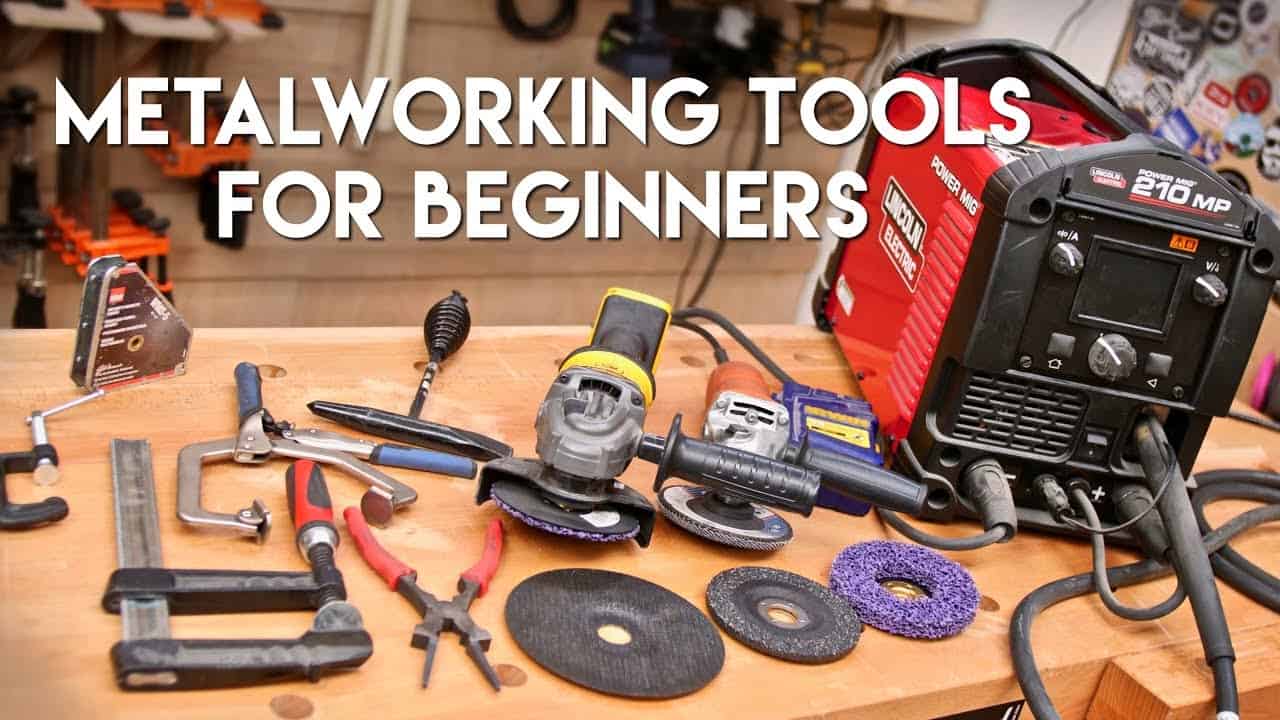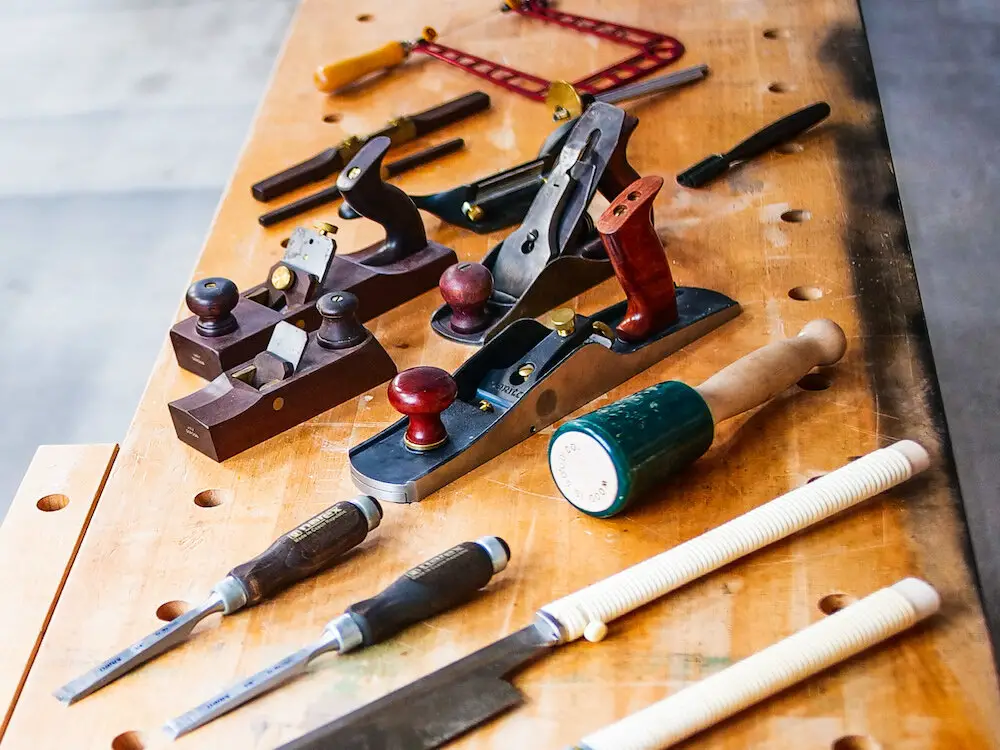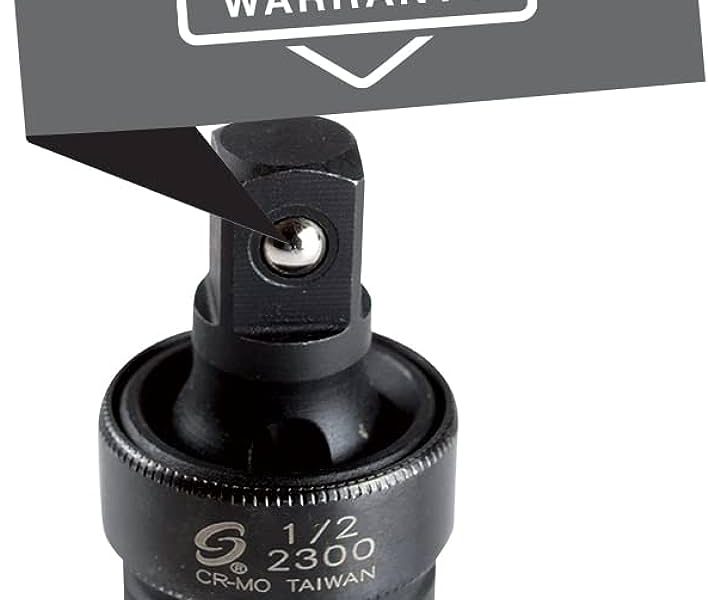The must-have hand tools for a beginner include a hammer, screwdriver set, pliers, and tape measure. As a beginner, it’s essential to have the right tools to tackle DIY projects and repairs with ease.
From simple tasks like hanging pictures to more complex projects, having a well-stocked toolbox can make all the difference. Among the must-have hand tools for beginners are the hammer, which is indispensable for tasks like nailing and demolition. A reliable screwdriver set is also essential for tightening or loosening screws of various sizes.
Pliers are versatile tools that can be used for gripping, cutting, and bending wires, while a tape measure ensures accurate measurements for precise cuts and installations. By having these basic hand tools, beginners can confidently take on a wide range of projects and enjoy the satisfaction of DIY success.

Credit: m.roadkillcustoms.com
Essential Hand Tools For Basic Diy Projects
Beginner DIY enthusiasts need a few essential hand tools for their basic projects. These must-haves include a tape measure, a hammer, a screwdriver set, a utility knife, and a set of pliers. Having these tools on hand will ensure a smooth and successful start to any DIY project.
Whether you’re a beginner or a seasoned DIY enthusiast, having the right tools is essential for any project. When it comes to basic DIY projects, there are a few hand tools that should be at the top of your list.
These tools will not only help you get the job done, but they will also serve as a solid foundation for your growing tool collection. In this section, we’ll explore the must-have hand tools for beginners, including the hammer, screwdriver set, and tape measure.
Let’s dive in!
Hammer
A hammer is a versatile tool that every DIYer should have in their arsenal. From driving nails to removing them, a hammer is essential for a wide range of tasks. Here are some features to consider when choosing a hammer:
- Material: Look for a hammer with a head made from durable materials like steel, which will ensure its longevity.
- Weight: Consider the weight of the hammer. A heavier hammer provides more power, but it may not be suitable for delicate tasks.
- Handle: Opt for a hammer with a comfortable grip handle, such as a rubber or non-slip grip, to ensure precision and minimize hand fatigue.
Screwdriver Set
A screwdriver set is another must-have hand tool for beginners. It is used for driving and removing screws, a task you’ll encounter in many DIY projects. Here’s what to look for in a screwdriver set:
- Variety: Choose a set that includes different types and sizes of screwdrivers, such as Phillips and flathead, to accommodate various screws.
- Magnetic Tips: Look for screwdrivers with magnetic tips, as they make it easier to position and hold screws in place.
- Ergonomic Design: Opt for screwdrivers with ergonomic handles that provide a comfortable grip for extended use.
Tape Measure
A tape measure may seem like a simple tool, but it’s indispensable for accurate measurements in DIY projects. Here’s what you should consider when selecting a tape measure:
- Length: Choose a tape measure with a sufficient length, typically around 25 to 30 feet, to accommodate a wide variety of measuring tasks.
- Locking Mechanism: Look for a tape measure with a reliable locking mechanism to hold the tape in place, ensuring accurate measurements.
- Clear Markings: Ensure that the tape measure has clear and easy-to-read markings for accurate measurements.
Having these essential hand tools in your DIY toolkit will set you up for success in your basic projects. From hammering nails to tightening screws and taking precise measurements, these tools will be your reliable companions. So, grab that hammer, screwdriver set, and tape measure, and let your creativity flow as you tackle your DIY endeavors!
Versatile Tools For Various Repairs
Beginners in the realm of repairs can benefit from a diverse range of versatile hand tools. From screwdrivers and pliers to wrenches and hammers, having these essential tools in your arsenal ensures you’ll be ready for any repair project that comes your way.
So why wait? Start your repair journey with these must-have tools today.
As a beginner in the world of DIY repairs, it can be overwhelming to know where to start. Thankfully, there are a few must-have hand tools that will come in handy for a wide range of projects. These versatile tools will give you the ability to tackle various repairs around the house with ease.
Let’s take a closer look at three essential tools for beginners: the adjustable wrench, pliers, and utility knife.
Adjustable Wrench:
- An adjustable wrench is a versatile tool that allows you to loosen or tighten nuts and bolts of different sizes. It eliminates the need for multiple wrenches, making it a cost-effective and space-saving choice.
- The adjustable jaw of the wrench can be adjusted to fit different fasteners, ensuring a secure grip and preventing slippage during use.
- This tool is handy for small tasks like assembling furniture or tightening plumbing connections, as well as larger projects like automotive repairs or fixing appliances.
- Its versatility makes it a must-have tool for beginners, as it will get you through a wide range of repairs with ease.
Pliers:
- Pliers are a versatile tool that helps you grip, turn, and manipulate objects with precision. They come in various types, including needle-nose, slip-joint, and lineman pliers. Each type serves a specific purpose, but having a basic set of pliers will cover most of your needs.
- Needle-nose pliers have long, narrow jaws that are perfect for gripping small objects or reaching into tight spaces.
- Slip-joint pliers have an adjustable pivot point that allows you to adjust their jaw size. This versatility makes them suitable for various tasks, such as gripping, bending, and turning.
- Lineman pliers, also known as combination pliers, have a cutting edge useful for snipping wires and a gripping area for holding and twisting objects.
- Whether you need to tighten a wire, twist a nut, or cut through materials, having a set of pliers in your toolbox is a must.
Utility Knife:
- A utility knife is a versatile cutting tool that every beginner should have. Its retractable blade makes it safe and easy to use.
- From opening packages to precision cutting, a utility knife can handle a wide range of tasks. The sharp blade can cut through various materials like cardboard, plastic, and even thin sheets of metal.
- Its small size and portability make it a convenient tool to have around the house, in the workshop, or even on-the-go.
- Whether you need to make precise cuts, trim materials, or score surfaces before snapping them, a utility knife will be your go-to tool.
By having these versatile tools in your toolbox, you’ll be well-equipped to tackle a variety of repairs and projects. The adjustable wrench, pliers, and utility knife will provide you with the versatility and functionality needed to handle different tasks with ease.
Don’t be intimidated by the world of DIY repairs – with these tools by your side, you’ll be well on your way to becoming a confident DIY enthusiast. Happy repairing!
Cutting And Shaping Tools For Precision Work
For beginners in precision work, essential cutting and shaping tools include a sharp utility knife, a pair of quality scissors, pliers, a precision screwdriver set, a small coping saw, and a set of files. These hand tools will provide the precision needed for accurate and detailed work.
Mastering the art of cutting and shaping wood requires the right tools in your toolbox. Whether you’re a beginner or a seasoned DIY enthusiast, having a reliable set of cutting and shaping tools is essential for any project. From hand saws to chisels and files, let’s explore the must-have hand tools for precision work.
Hand Saw:
A hand saw is a versatile tool that allows for accurate and controlled cutting of wood. Here are a few key points to consider:
- Crosscut saw: Ideal for cutting wood across the grain or trimming lumber to size.
- Rip saw: Designed for cutting wood parallel to the grain, making it perfect for shaping and smoothing rough lumber.
- Backsaw: Offers precise cuts for more intricate woodworking tasks such as joinery or creating precise angles.
Chisel Set:
Chisels are indispensable when it comes to fine woodworking and creating intricate details. Here’s what you need to know:
- Beveled edge chisels: Provide excellent control for precise cutting and carving tasks.
- Mortise chisels: Designed specifically for cutting mortises or square holes in wood.
- Bench chisels: Versatile chisels for general woodworking tasks, such as shaping or removing excess material.
Files And Rasps:
Files and rasps are essential for shaping, smoothing, and refining wood surfaces. Consider the following points:
- Woodworking files: Available in various shapes and sizes, they are perfect for removing rough edges or shaping contours.
- Cabinet files: Offer finer teeth for more delicate, detailed work.
- Riffler rasps: Ideal for intricate shaping and smoothing in tight spaces.
By adding these cutting and shaping tools to your arsenal, you’ll be well-equipped to tackle a variety of precision woodworking projects, from simple DIY crafts to more complex furniture-making endeavors. Remember to choose high-quality tools and practice proper technique to achieve the best results.
Happy woodworking!
Frequently Asked Questions On What Are The Must-Have Hand Tools For A Beginner?
What Are Basic Hand Tools?
Basic hand tools include wrenches, hammers, screwdrivers, pliers, and tape measures, among others.
What Is The Most Important Hand Tool?
The most important hand tool depends on the task at hand, but some commonly used tools include hammers, screwdrivers, and wrenches.
What Are 4 Basic Skills Woodworkers Should Have?
Woodworkers should possess four basic skills: measuring accurately, using hand and power tools proficiently, understanding different woodworking techniques, and having good problem-solving aptitude.
What Are Basic Hand Tools For Woodworking?
The basic hand tools for woodworking include a mallet, chisels, a hand saw, a coping saw, a block plane, and a tape measure. These tools are essential for woodworking projects.
Conclusion
Building a beginner’s tool kit can seem daunting, but with the right selection of hand tools, you can tackle a variety of DIY projects with confidence. Starting with the essential must-haves like a hammer, screwdrivers, and pliers, you’ll be prepared for basic repairs around the house.
Investing in a tape measure, level, and utility knife will ensure accuracy and precision in your work. Don’t forget about safety! Safety goggles and work gloves are indispensable when handling tools. As you gain experience, you can expand your collection to include specialty tools that cater to your specific projects.
Remember to store your tools properly and maintain them regularly for longevity. By having the right hand tools at your disposal, you’ll be well-equipped to handle any beginner-level project and unleash your inner DIY enthusiast. Happy DIY-ing!


